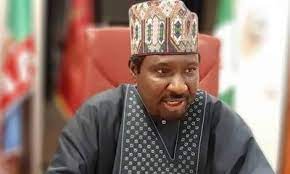The United Kingdom Bar Council has confirmed that the governorship candidate of People Democratic Party (PDP) in Kwara state, Rasaq Olatunde Atunwa, was called to the bar in October 1994 as unregistered barrister.
The confirmation is coming through a United Kingdom based special investigator, Evangelist Victor Uwajeh, who had written the council to authentic the information the governorship candidate released to the public in Nigeria.
Recall that there have been alleged reports of certificate scandal involving Atunwa on whether he was called to bar.
However, according to a response the special investigator got from the UK Bar Council, Atunwa is currently on the record of the Council as an unregistered Barrister.
The letters made available to newsmen by Uwajeh, on Wedneaday, revealed further that in the UK, “a Barrister can only work (known as “practising”) as a barrister if they are registered with the Bar Standards Board and hold a valid practising certificate.”
The UK Bar Council response read in parts: “I have checked our records and whilst we do not have a record of a barrister with the exact name of Razaq Atunwa we do have a record of a barrister with a similar name.
“Razak Olatunde Atunwa was called to the Bar in October 1994 by Inner Temple. They are currently on our records as an unregistered Barrister, which means that they do not hold a Practising Certificate. We do not hold any details regarding educational institutions they have attended.
“Barristers who are not practising, and do not have a valid practising certificate, are not allowed to supply, or offer to supply, legal services when referring to themselves as barristers. The following examples will give an idea of what is prohibited;
*Describing oneself as a Barrister in any printed material used in connection with the provision of legal services: in particular in advertising or publicity, on a card or letterhead, or on premises
• Describing oneself as a Barrister to clients or prospective clients
• Describing oneself to clients or prospective clients as a non-practising barrister or Barrister-at-law (titles which have been allowed in the past but not in recent years)
• Indicating to opposing parties or their representatives (e.g. in correspondence) that one is a Barrister
• Describing oneself as a barrister or (when supplying services to the public) as “counsel”, wearing robes, or sitting in a place reserved for counsel, in court
• Using other descriptions in connection with supplying, or offering to supply, legal services which imply that the individual is a Barrister (e.g. membership of an Inn of Court)
(These examples are not exhaustive.)
“Even if a Barrister says they are not practising or calls themselves a “Barrister-at-law”, they are still not allowed to create the impression they can work as a Barrister when providing legal services, like;
• Giving advice about a legal case;
• Representing someone in court.
An unregistered barrister cannot describe themselves as a Barrister while providing or offering to provide legal services like those outlined above.
“If you think that the unregistered barrister you are dealing with has offered to work for you as a Barrister when they are not able to do so, please let us know.
I hope that the above is helpful to you.
“However, please be aware that if Razak Olatunde Atunwa is not the individual you have enquired about if a person has not qualified as a barrister, they cannot use the term “barrister” at all.
“It is against the law for someone to (deliberately or wilfully) pretend to be a barrister when they are not, or to use any name, title or description that makes it seem as though they are a barrister when they are not.
“Further details about the above may be found on the Bar Standards Board website ‘Is the person I’m dealing with really a barrister’
“If you think it may be possible that the person you have enquired about could be a member of another part of the legal profession, you could contact the organisations that deal with those other branches of the legal profession, for example The Law Society in respect of solicitors.”



